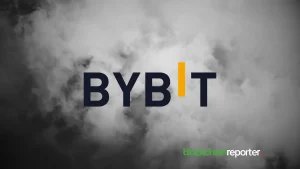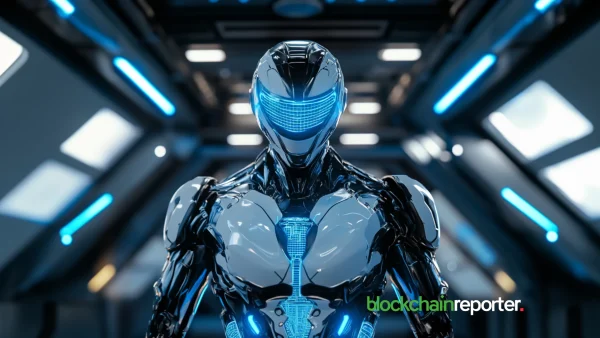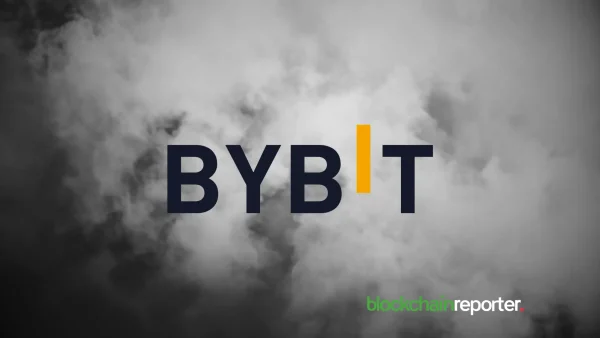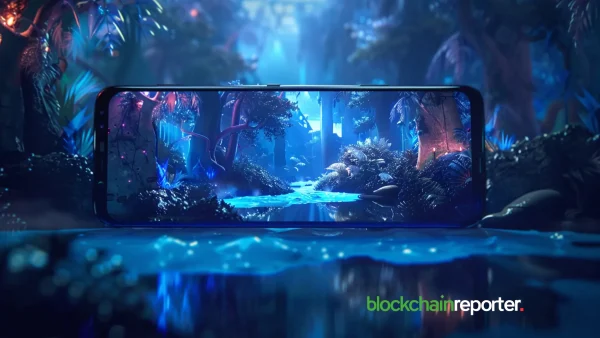
The digital era is almost here, or maybe it’s already here…
Digitalization is expanding, if you compare how the world is now to about 10 years ago, you would know the digital era is here. Virtually everyone uses tech nowadays if it’s not a car, it’s a PC if it’s not a PC, it’s a smartphone, if it’s not a smartphone, then you’re at least making use of the Internet in a sort of way. The world keeps turning into a digital tech world each day, and guess what… With blockchain just starting to be a part of the play, well I think our digital world is just getting started.
A lot of industries or sectors have been doing their thing or investing their way into digitalization. We saw the financial sector starting with virtual credit cards, ATM withdrawals, fintech, and so on, including the healthcare industry. Every industry is now competing its way and building its foundation in the tech or digital world. As people are starting to recognize and adopt blockchain technology, I think our digital world is just getting started. Let’s see how blockchain is evolving our world, and turning it into an even more digitalized world.
But first of, just to scratch the surface of what blockchain technology is…
Blockchain Technology
Blockchain Technology is a public distributed decentralized database or a ledger where transactions and information are recorded. When a transaction is made on the blockchain, it is recorded and distributed to every computer on the network to be aware of. Therefore, making it transparent and unalterable. This makes blockchain eliminates any kind of fraud or theft in the system.
What?
You weren’t expecting an epistle on the blockchain, were you?
Told you we’d just scratch the surface.
Although, blockchain was initially created to facilitate the digital transfer of money — Bitcoin, is a cryptocurrency or digital currency whereby you could make payments digitally. People’s thought on blockchain was that it is there just for financial reasons, that is, making payments and recording transactions. Until people start to figure out there’s more to which blockchain technology is capable of, and there are tons of more features this technology could offer.
Let’s look at the applications created on the blockchain technology, that is also helping in evolving our world into a more digital one.
The Metaverse
The metaverse is a broad term, it’s an online or digital space where people could interact with each other in a more immersive way than on a traditional website. The metaverse is also a blockchain-based public platform, a decentralized open-source ecosystem where users could create applications on it, digitally. Metaverse also, as an open-source blockchain infrastructure, comprises DUI, decentralized wallet, and exchanges to purchase digital assets in the metaverse. The term “Metaverse” has now been recognized by the blockchain community to describe a Web 3.0 blockchain-based digital world.
Decentralized Exchange
Decentralized exchange is a blockchain-based platform whereby users could trade different cryptocurrencies without the need for any intermediary or centralized third party broker. The “blockchain-based” means it is issued on a blockchain, which makes it decentralized. Decentralized exchanges can come in diverse ways. The most common type of decentralized exchange is peer-to-peer (p2p) exchange. This is a type of exchange in which when trading digital assets, it’s just between you and that person. A decentralized exchange may be powered by smart contracts, eliminating the need for intermediaries.
Speaking of smart contracts, guess what’s next on the list…
Smart Contracts And BaaS
A smart contract is an autonomous computerized algorithm capable of performing the terms of a contract. The capabilities necessary and the data required to execute a smart contract to execute itself are present in the distributed ledger system. Most smart contracts are developed under the Ethereum network, and when talking about smart contracts, solidity should always chime in. Ethereum is a really popular blockchain network mostly used for anything Baas (blockchain-based application service). Baas is a software service that helps enterprises develop, deploy decentralized applications (dApps), and provide access to the users. It is one of the significant use cases of blockchain technology.
Non Fungible Tokens (NFTs)
NFTs are a cryptographic unit of data or assets stored on a blockchain with unique identifications that distinguishes them from each other and that can be traded. NFT data units or assets can be associated with photos, videos, audio, and digital files. NFTs can be used variously, they could be for in-game purchases, as rewards for users who create content, as rewards for viewers of content, as rewards for those who participate in a giveaway, and so on. Blockchain enables NFTs to prove ownership or history of ownership, prove scarcity, make all NFTs immutable, and also makes it decentralized — that is, available for everyone to see or use with no limitations.
The Future Of The Digital World
As long as blockchain technology is still a part of our evolving digital world, we will only continue to see our world digitize in a more immersive way. This digitization will affect businesses, industries, banks, and even society as we know it, at an exponential rate. There will be a lot of changes, and the reality of our world will be the change.
Frequently Asked Questions
How is blockchain technology contributing to digitalization?
Blockchain adds transparency, security, and decentralization to digital systems, supporting innovations in finance, healthcare, gaming, and more.
Is blockchain only used for cryptocurrency?
No, blockchain powers much more than crypto. It enables smart contracts, NFTs, decentralized apps, and platforms like the metaverse.
What are some real-world applications of blockchain?
Blockchain is used in decentralized exchanges, NFT markets, digital identity, supply chain tracking, and Web3 platforms like the metaverse.








